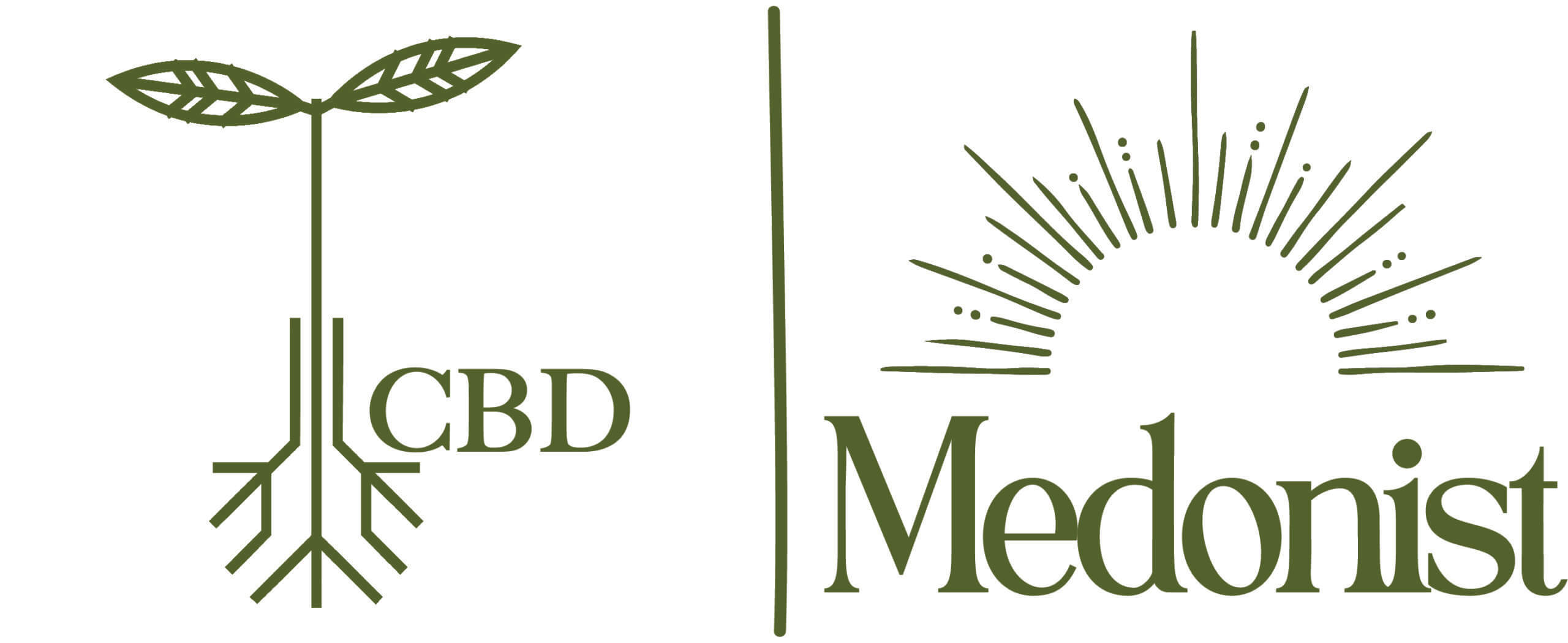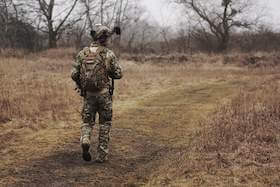CANNABIDIOL (CBD) FOR ANXIETY
Jared D. Hoffman, PhD
Cannabidiol (CBD) is one of the many phytocannabinoids found in the Cannabis plant. Its reported health benefits are numerous and clinical studies are ongoing to investigate these claims. One such potential health benefit of CBD is its anti-anxiety effects. Anxiety is the feeling of worry, nervousness, or unease that is typically brought on by an imminent event or uncertain outcome. The symptoms of anxiety include excessive worry, increased pulse rate, sweating, restlessness, being easily fatigued, muscle tension, irritability, lack of concentration or mind going blank, and difficulty sleeping. Of course, anxiety is a normal aspect of life and occasional anxiety about a certain stressful or high-pressure event will happen. However, excessive anxiety when it does not stop, gets worse over time, and interferes with daily life may indeed be classified as an anxiety disorder. The primary features of an anxiety disorder typically seen according to a review by Craske et al. published in Nature are excessive and enduring fear, anxiety, or avoidance of a perceived threat either in the external or internal environment.1 Anxiety disorders include general anxiety disorder (GAD), social anxiety disorder (SAD), and panic disorder (PD). In the United States, the lifetime prevalence of anxiety disorders is 29%,2 an astoundingly high number. A handful of studies have been conducted to elucidate if CBD does indeed decrease anxiety-like effects and these will be discussed in this article. However, we will first go over potential mechanisms of action of CBD.
Mechanisms of Action of CBD
The mechanisms of action of CBD have not yet been fully elucidated but there have been a few different targets of CBD that provide evidence on how it may reduce anxiety. These include direct and/or indirect actions on the Cannabinoid Type Receptor 1 (CB-1), the Transient Receptor Potential Vanilloid Type 1 Receptor (TRPV-1), 5-HT1A receptor, peroxisome proliferator-activated receptor-γ(PPARγ), and the orphan G-protein-coupled receptor 55 (GPR55).3 Notably, many of these receptors have even been the target of pharmacological anxiolytic drugs.
Clinical Evidence
Preclinical evidence has found CBD to be beneficial in models of generalized anxiety, stress-induced anxiety, PD and compulsive behavior, and contextual fear conditioning. A review by Blessing et al. found CBD to indeed provide enough positive evidence in preclinical models to warrant studies in anxiety disorders in a clinical setting.3 Although the amount of CBD anxiety research in the clinical setting is fairly low, clinical trials are ongoing, and a few studies in humans have shown benefit. Initial studies demonstrated that CBD could decrease the anxiogenic impact of tetrahydrocannabinol (THC),4 the psychoactive cannabinoid in the Cannabis plant. However, other studies have investigated CBD by itself. In one study by Shannon et al. using 72 adults with concerns over anxiety, 25 mg/d to 75 mg/d of CBD in capsule form was given in the morning. In 57 patients (79.2% of the total patients), anxiety scores decreased, and this reduction was continued throughout the study. CBD was also demonstrated to be well tolerated and safe with the primary side effects being related to fatigue. This study even mentioned that CBD may very well be safer than many psychiatric medications. However, there was no control group in this study and patients knew if they were receiving CBD. Thus, the results are subjective, and due to the placebo effect, patients may have received benefit due to them believing their anxiety would decrease because they were taking CBD.5
Other studies have looked at CBD use in episodes of acute anxiety. CBD was able to decrease anxiety in public speaking events in both healthy subjects and those with SAD. Similarly, benefits in anxiety were also found using a 400 mg dose of CBD in patients that were about to undergo a single-photon emission computer tomography (SPECT) imaging test.6 This study was hampered by a small sample size but found a decrease in anxiety and mental sedation along with changes in cerebral blood flow in certain regions of the brain due to CBD. These regions of the brain were primarily related to the limbic and paralimbic cortical areas, areas implicated in anxiety. This study also found CBD to increase cerebral blood flow to the left hippocampal region of the brain, a region found to be activated after induced panic attacks7 and anxiety.8 Lastly, studies applying chronic doses of CBD have only been seen in Cannabis use itself or using THC in conjunction with CBD. Since CBD and THC interact, the evidence on chronic usage of CBD for anxiety is not yet available.
CBD has numerous purported beneficial effects with its ability to decrease anxiety as one that has skyrocketed its use and popularity in the general public. A few studies have now found that CBD does indeed help with anxiety, primarily in the dosage range of 300 to 600 mg. Although this article has discussed the pros and cons of the research, collectively, these studies are very promising and warrant further investigation to be conducted in clinical trials. Indeed, CBD may be an effective and safe way to decrease anxiety. Whether or not these benefits will be translatable to those without an anxiety disorder is not known. However, this may also hold promise as one aforementioned study found CBD to decrease anxiety in healthy individuals who were about to undergo a public speaking event. Overall, future research should be conducted using well-designed clinical studies to further investigate the use of CBD in anxiety. Along with this, research should be conducted to aid in finding the optimal dose of CBD, method of delivery of CBD administration, and if there are any chronic, long-term effects of CBD usage.
As always, consult with your physician before beginning a CBD regimen as CBD does have the potential to interact with other medications.
References:
- Craske MG, Stein MB, Thalia CE, Milad MR, Holmes A, Wittchen HU. Anxiety disorders. Nature Reviews Disease Primers. 2017; 3:17024.
- Kessler RC, Berglund P, Demler O, Jin R, Merikangas KR, Walters EE. Lifetime prevalence and age-of-onset distributions of DSM-IV disorders in the National Comorbidity Survey Replication. Arch Gen Psychiatry. 2005; 62:593–602.
- Blessing EM, Steenkamp MM, Manzanares J, Marmar CR. Cannabidiol as a Potential Treatment for Anxiety Disorders. Neurotherapeutics. 2015; 12(4): 825-836.
- Karniol IG, Shirakawa I, Kasinski N, Pfeferman A, Carlini EA. Cannabidiol interferes with the effects of delta 9 – tetrahydrocannabinol in man. Eur J Pharmacol. 1974; 28:172–177.
- Shannon S, Lewis N, Lee H, Hughes S. Cannabidiol in Anxiety and Sleep: A Large Case Series. Perm J. 2019; 23:18-041.
- Crippa JA, Zuardi AW, Garrido GE, et al. Effects of cannabidiol (CBD) on regional cerebral blood flow. Neuropsychopharmacology. 2004; 29:417–426.
- Reiman EM, Raichle ME, Robins E, Mintun MA, Fusselman MJ, Fox PT et al. Neuroanatomical correlates of a lactate-induced anxiety attack. Arch Gen Psychiatry. 1989; 46:493–500.
- Bremner JD, Staib LH, Kaloupek D, Southwick SM, Soufer R, Charney DS. Neural correlates of exposure to traumatic pictures and sound in Vietnam combat veterans with and without posttraumatic stress disorder: a positron emission tomography study. Biol Psychiatry. 1999; 45:806–816.
ALSO IN RESOURCES
CANNABIDIOL (CBD) FOR ATHLETICS
CANNABIDIOL (CBD) FOR ATHLETIC PERFORMANCEJared D. Hoffman, PhD Athletes, both professional and recreational, are always looking to gain an edge and push their performance in their respective sport to new levels. Often times, athletes will go to great lengths to do...
HOW TO DOSE CANNABIDIOL (CBD)
HOW TO DOSE CANNABIDIOL (CBD) Jared Hoffman, PHD Cannobidiol (CBD), a cannabinoid found in cannabis, is currently a hot topic among the general public and in the scientific community with new studies utilizing CBD in a variety of different disease states.1 Due to this...
CANNABIDIOL (CBD) FOR PTSD
CANNABIDIOL (CBD) FOR POST-TRAUMATIC STRESS DISORDERJared D. Hoffman, PhD Cannabidiol (CBD) is a non-psychotomimetic cannabinoid found in the Cannabis plant. CBD, along with tetrahydrocannabinol (THC), the well-known psychoactive component of Cannabis, are just two of...
838 E High St, Suite 268, Lexington Ky 40502
© 2019 On Duty CBD.
This product is not for use by or sale to persons under the age of 18. This product should be used only as directed on the label. It should not be used if you are pregnant or nursing. Consult with a physician before use if you have a serious medical condition or use prescription medications. A doctor’s advice should be sought before using this and any supplemental dietary product. All trademarks and copyrights are property of their respective owners and are not affiliated with nor do they endorse this product. These statements have not been evaluated by the FDA. This product is not intended to diagnose, treat, cure or prevent any disease. By using this site, you agree to follow the Privacy Policy and all Terms & Conditions printed on this site. Void Where Prohibited by Law.




